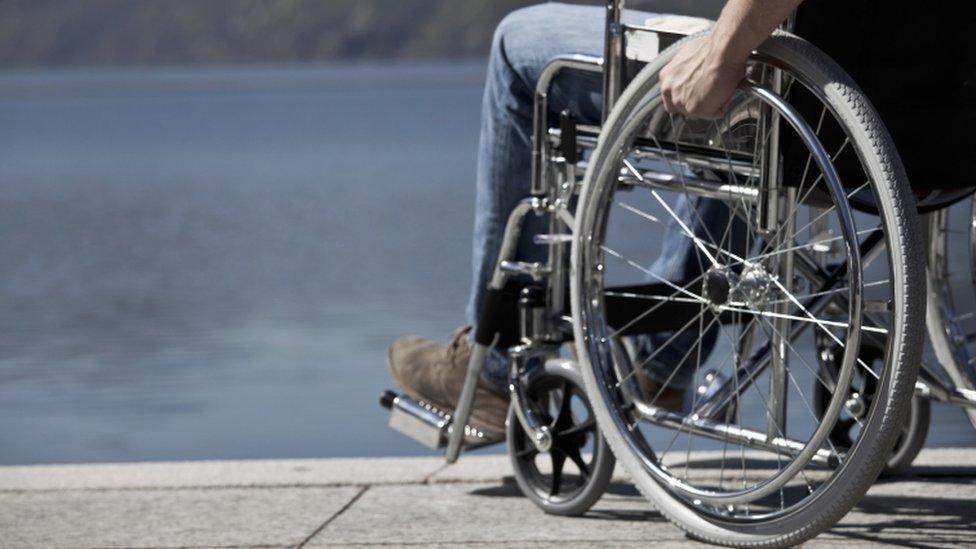Lynette Mchendry 'asked to sign cancer death warrant'
- Published
Lynette Mchendry has been living with cancer for three years
A mother-of-two with terminal cancer says she has been told to sign a form stating she has six months to live or risk losing her benefits.
Lynette Mchendry said this would be like "signing her death warrant", as doctors have no idea how long she could survive.
The 40-year-old is one of more than 100,000 people in Northern Ireland being reassessed for Personal Independence Payments (PIP).
She said the request was "degrading".
"There was no way I was prepared to get that signed," the County Antrim woman told BBC News NI. "It's like signing your death warrant.
"Instead of seeing how they can support you to live an independent life in the time you have, I believe I will never be entitled to it until I'm on my death bed."
The former civil servant, from County Antrim, was diagnosed three years ago and previously received Disability Living Allowance (DLA), which has been replaced by PIP.
The form she refers to is known as the DS 1500, which can be obtained by applicants from their doctor or consultant.
The Department for Communities, which oversees PIP payments, said that even if the DS 1500 is not provided, the applicant's case can still be considered under special rules if they meet certain criteria.
But it added that it could not comment on individual cases.
Mrs Mchendry's payments are continuing while her assessments are under way.
Life with cancer
Applicants to PIP must first fill out a form detailing how they are affected by their disability.
To assess the level of help needed, an independent health professional either invites applicants to a meeting - at home or at an assessment centre - or asks a health or social care worker for information.
During the meeting, applicants are asked questions about their life is affected by their condition, and their ability to carry out day-to-day activities.

What is PIP?
PIP benefit is replacing Disability Living Allowance (DLA) as part of a wider reform of UK welfare for people aged between 16 and 64.
The payment is made to those who have a disability or long-term illness, with the amount based on how the condition impacts someone's life.
The weekly rate for the daily living part of PIP ranges from £57.30 to £85.60, while those given the mobility part can take home between £22.65 and £59.75 more.
Latest published statistics for PIP show that from July 2016 till May 2018, 65% of claims in Northern Ireland were successful.

During Mrs Mchendry's interview assessment, she said she was asked whether she could feed herself and use the toilet unaided.
"There's some days that I can't get out of bed," she said. "Whenever I'm on chemo, I have a syringe driver to keep the sickness down."
"It's a struggle, but until the stage when I can't feed myself and can't go the toilet myself, I want to maintain my dignity."
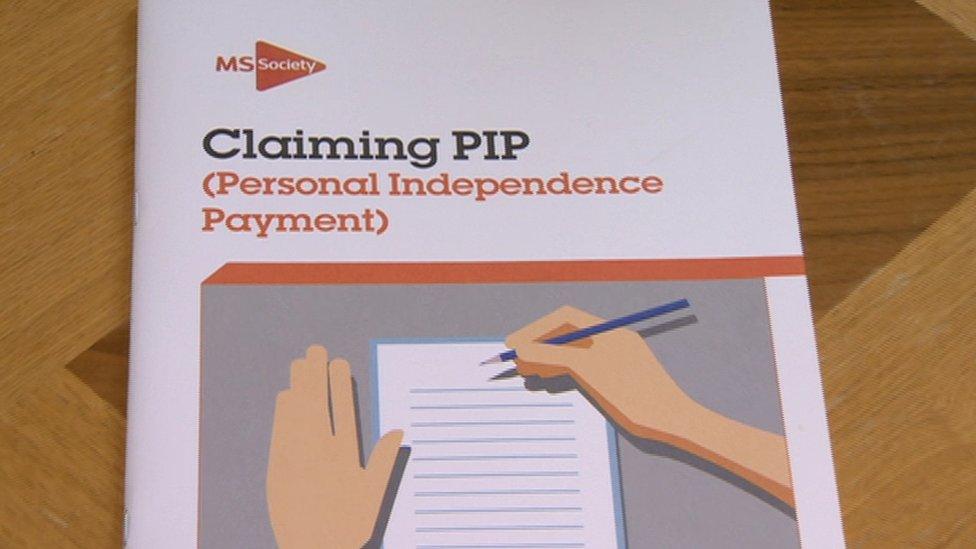
More than 100,000 people in Northern Ireland are being reassessed for PIP
She said that Capita, the benefit assessment provider, now requires a second assessment.
"Having completed a very lengthy application form with my full medical history and medication, followed by a 90-minute interview, I am bewildered at how they need more information," said Mrs McHendry.
The second assessment had been scheduled for last month, but she missed the appointment after confusing the dates.
"My memory is not what it used to be. My IQ isn't what it used to be since the chemo. I held my hands up and said: 'It's my fault.'"

Terminal illness candidates
Someone with a health condition is not automatically entitled to PIP payments, except in cases of terminal illness.
"PIP arrangements recognise the particular difficulties faced by people who only have a short time to live," said a Department of Communities spokesperson.
Similar to other benefits, a person is regarded as terminally ill if they suffer from a progressive disease and death can be expected within six months.
Claimants deemed as having a terminal illness do not have to complete a standard PIP form and are guaranteed a £85.60 weekly enhanced rate of payment.
Nearly all also receive the enhanced rate of mobility, resulting in a total of £145.35 a week, the spokesperson added.

Having missed the appointment, Mrs Mchendry was told she was at risk of losing her payments.
Since the BBC contacted the Department of Communities, however, the appointment has been rescheduled, although its date has not been confirmed.
One mum's cancer story
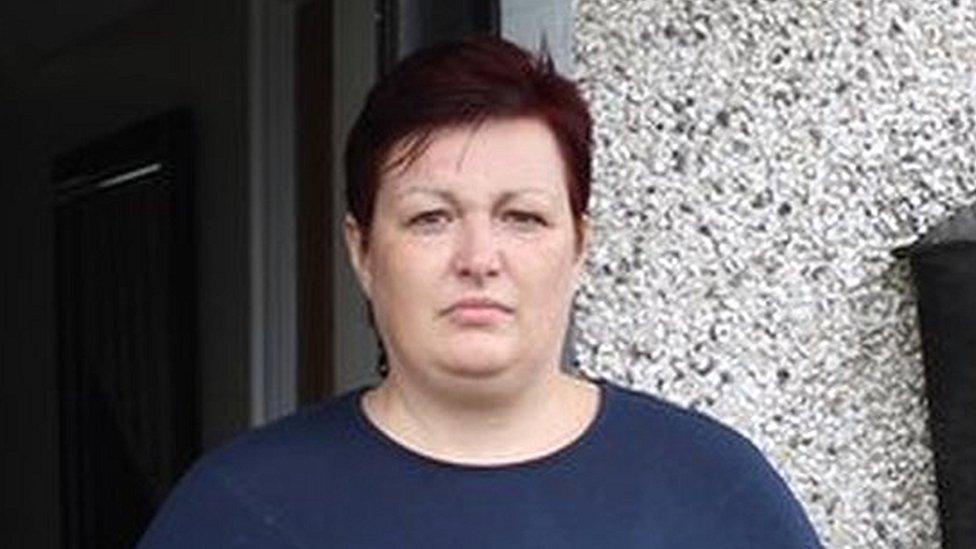
Some days the mother-of-two struggles to get out of bed, due to the effects of her chemotherapy
In 2015, Lynette Mchendry had a pain in her breast. Her GP referred her to a hospital, where she was diagnosed with cancer on her right breast.
Eight weeks later, she was diagnosed with breast cancer on her left breast.
She underwent a double mastectomy.
Then she was dealt with another diagnosis: Her cancer had spread to her brain.
She now lives with stage four cancer.
"There's no cure for stage four unfortunately," she said.
"The statistics and prognosis for having cancer spread to the brain is actually very low. I have defied the odds because I'm here three years later."
'Making milestones'
Despite finding a tumour on the back of her head, Mrs Mchendry was determined to return to work. But when she went for her three-month check-up, the doctors discovered another tumour.
"At that stage I realised that this has changed my life," she said.
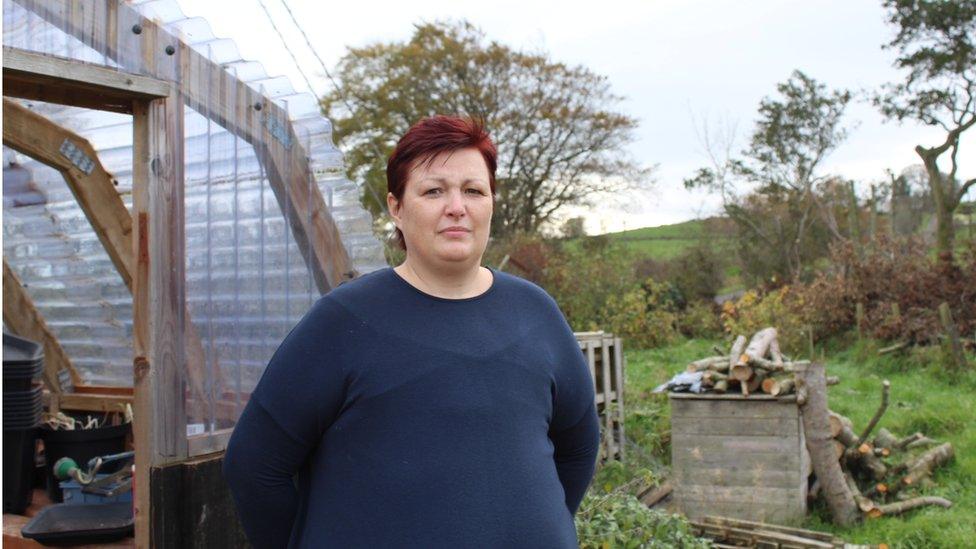
Lynette Mchendry has been living with cancer since 2015
"I had to give up work, applied for ill-health retirement at 38. I then had to give up my driver's licence.
"I have to depend on people. I have to get people to take me everywhere, to take my kids places or to take me to hospital appointments."
When she was first diagnosed with cancer, she applied for the the Disability Living Allowance (DLA). She had received these payments until September, when she was told she needed to switch to the PIP system.
Mrs Mchendry said that the benefits helped to pay for a car, oxygen therapy and health supplements.
While she is determined to fight to secure the PIP payments, she said the biggest battle is giving her husband and two sons a normal life.
"I just keep setting myself milestones. I have seen my two kids go from primary school to secondary school," she said.
"I've seen my 40th birthday and I'll just keep continuing to make my milestones for myself until I can't."
- Published15 March 2017
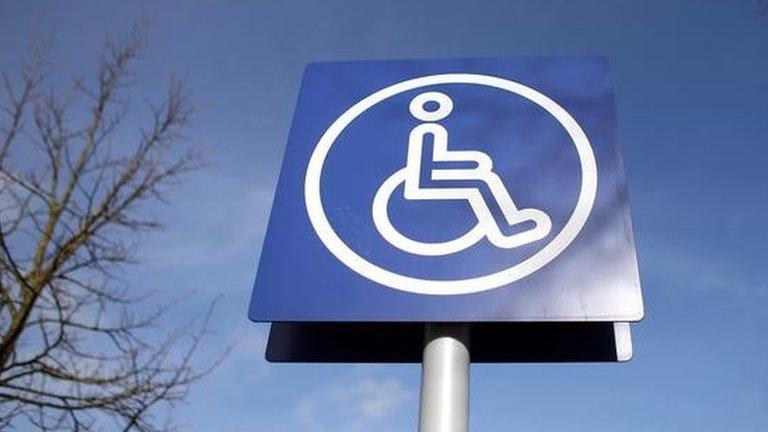
- Published27 February 2017
